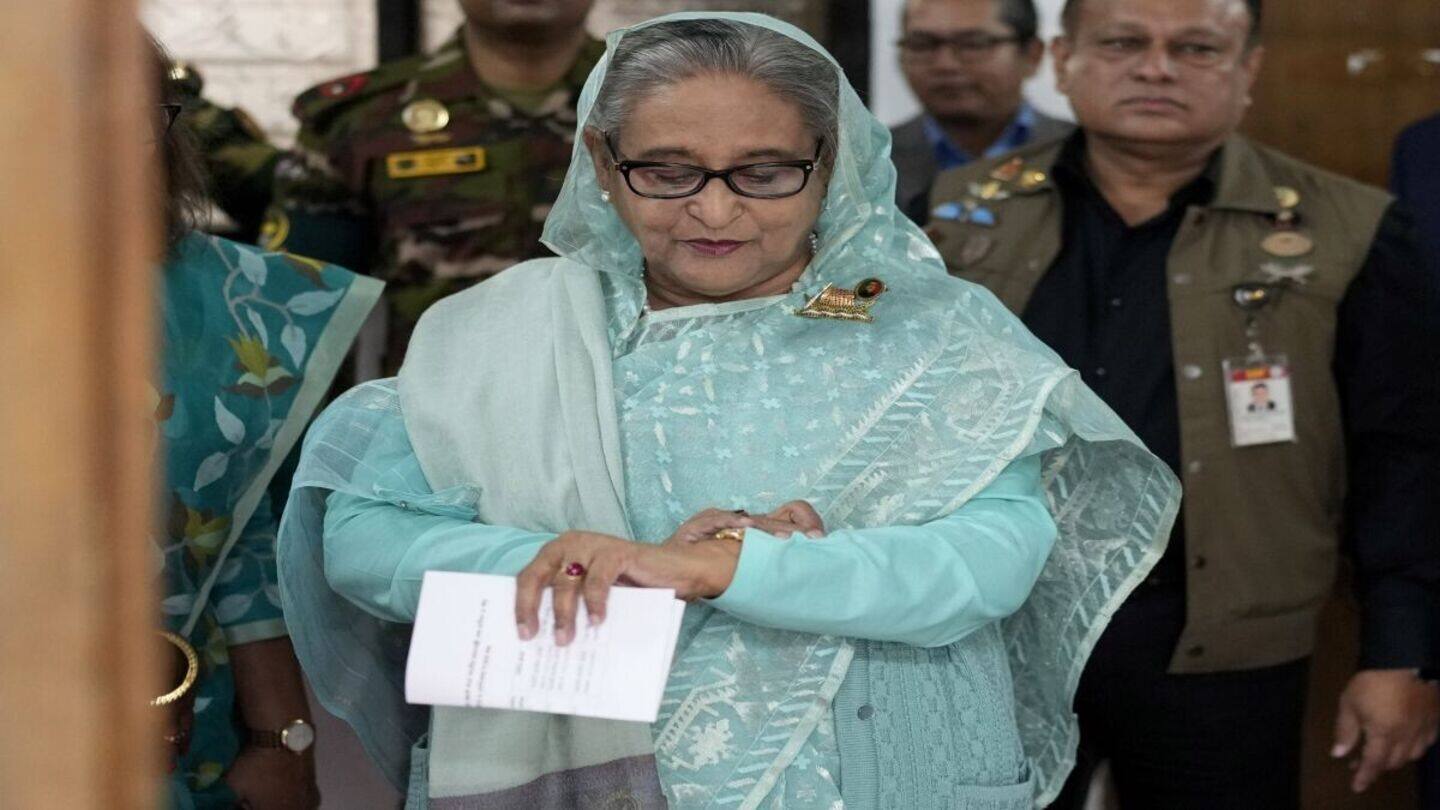
Bangladesh seeks Interpol's red notice against former PM Sheikh Hasina
What's the story
Bangladesh Police have asked Interpol to issue a red corner notice against its former Prime Minister Sheikh Hasina, who has been living in India since August 2024.
Experts suggest that this request might affect her existing status in India.
The appeal was made by the National Central Bureau (NCB) of Bangladesh Police on Sunday, and confirmed by Enamul Haque Sagor, Assistant Inspector General (Media) to The Daily Star.
Legal implications
Red notice could lead to provisional arrest
If approved, the red notice would enable Sheikh Hasina's and 11 others' provisional arrest and location tracking.
Sagor said such applications are made in the context of allegations that surfaced during an investigation or in the course of case proceedings.
He further explained Interpol's role in tracing absconders living abroad: once the whereabouts of an absconding person is ascertained, it is reported to Interpol.
Legal action
Arrest warrants issued for Sheikh Hasina
This request follows the issuance of arrest warrants by Bangladesh's International Crimes Tribunal (ICT) for Sheikh Hasina and several former Cabinet ministers, advisers, military and civil officials.
They are charged with "crimes against humanity and genocide."
In November last year, the Chief Prosecutor's Office of the ICT formally requested police headquarters to seek Interpol's assistance in apprehending Sheikh Hasina and others classified as fugitives.
Interpol's role
Understanding Interpol's red corner notice
Interpol, an intergovernmental law enforcement organization, has a 'color-coded' alert system to share crime-related requests among its member countries.
The red notice is the most commonly used type to seek the location/arrest of a person wanted by a judicial jurisdiction or an international tribunal, for extradition.
However, an Interpol red notice is not an arrest warrant but an international alert for a wanted person.
Legal challenges
Over 100 cases filed against Sheikh Hasina
Since she left Bangladesh in August, over 100 cases have been filed against Sheikh Hasina, including mass murder and graft. The Bangladeshi government is seeking her return to face trial for the charges.
However, she has refused to return to Bangladesh, and India has shown no signs of extraditing her.
Last December, Dhaka submitted all necessary documents to India requesting Sheikh Hasina's extradition, but New Delhi has remained silent on the matter.
Treaty details
Extradition treaty between India and Bangladesh
India and Bangladesh already have an extradition treaty, which was renewed in 2016 for faster execution.
The treaty says the offense has to be punishable in both countries.
However, legal experts say India can deny the request if there are credible concerns about politically motivated charges and unfair judicial proceedings in Bangladesh.
Geopolitical experts also feel India is unlikely to extradite Sheikh Hasina because of possible diplomatic repercussions.